- Home
- JoAnn Ross
Far Harbor Page 6
Far Harbor Read online
Page 6
“You need to initial here”—he pointed toward the line accentuated with a flourescent red Post-it flag—“and here.” He tapped the pen point on another line on the second page, then flipped to the last page. “Last chance to change your mind.”
Undaunted by the herculean task ahead of her, Savannah ignored his warning.
This morning, when she’d been sitting at the kitchen table, fretting over a proposed construction schedule that dragged into late fall, her grandmother had briskly pointed out in her no-nonsense way that “even Rome wasn’t burned in a day.”
The Ida-mangled advice had reminded Savannah of what she’d suspected when she’d packed up her belongings and walked away from her former comfortable California existence. Rebuilding an entire life from scratch would undoubtedly not be easy.
Knowing she’d suffer setbacks, she wrote her name with a flourish on the final page of the contract to purchase the Far Harbor lighthouse, and for the first time in a very long while, Savannah felt blissfully, incredibly happy.
5
T he Far Harbor lighthouse was draped in a soft haze. A cool curtain of fog hung low over the water, and the dense grove of Douglas fir and western hemlock behind the lighthouse loomed dark and mysterious. The dawn sky had been streaked with crimson, predicting that by afternoon thunderstorms would be rumbling their way from the sea over the mountaintops, creating rain that would hit the water like bullets. Winds would stir up whitecaps, and stuttering trees of white lightning would flash across the blackened sky. Living amidst so much nature might not be for the faint of heart, but Dan found it invigorating.
As his running shoes pounded on the wet sand near the water’s edge, he thought, not for the first time, how ironic it was that after so many years spent plotting his escape from Coldwater Cove, here he was, back home again, right where he’d started.
He dodged a green tangle of kelp that had ridden onto the pearl gray beach on a surge of tide and decided that Savannah Townsend’s recent arrival back in town was additional proof that life tended to have more jigs and jogs than the narrow roads twisting through the jagged Northwest mountains.
The too-early deaths of his sister and brother-in-law had been, hands down, the worst event of his life. But there’d been no time for self-pity as he’d sat vigil beside John’s hospital bed, praying for him to regain consciousness—which, thank God, he had.
During his nephew’s long recuperation, Dan’s attention had been focused on getting John back on his feet. But other events forced him to face the fact that his wife didn’t possess the same deep-seated sense of family that he’d been moderately surprised to discover guided his own life.
His first clue had been when Amanda had refused to even visit him in Coldwater Cove, claiming that social obligations and her part-time career as an interior designer to the mega-wealthy made it impossible for her to leave San Francisco for any extended period of time.
By the time the divorce papers had arrived, he’d taken a long hard look at a marriage that should have been declared dead at the altar and vaguely wondered why Amanda had waited so long. As soon as John was back on his feet and had returned to school, Dan had thrown his energies into establishing a new law practice.
The tide ebbed, leaving behind a sparkling trail of diaphanous sea foam. He pounded up the stone steps leading from the beach and compared the morning solitude with San Francisco’s vibrant pulse. Once, in what now seemed like another life, before youthful illusions had been snuffed out by the cold harsh winds of reality, he’d run every morning on this very same beach and daydreamed of bright lights and big cities. The Olympic Peninsula town founded by one of his ancestors had always seemed too provincial, too confining, for someone of Dan O’Halloran’s lofty talent and ambition.
The only son of a Coldwater Cove commercial fisherman and homemaker turned charter boat cook, by the time he’d entered junior high school, Dan had a very firm future in mind. The plan, laid out with all the care and precision of the Joint Chiefs preparing for invasion, was to get a prestigious law degree, work for a few years in a high-profile job—prosecution, perhaps—which would set him up for partnership in a respectable big-city law firm.
Rounding out the mental picture was a Tudor-style house like the one belonging to some Wall Street wizard he’d seen profiled in a glossy magazine while waiting for the orthodontist to tighten his braces. The house would boast acres of rolling emerald lawn someone else would mow, a blue tiled swimming pool and a tennis court—red clay, rather than the more pedestrian concrete the public courts at Founders Park were made of, because that’s what the mutual fund titan had chosen.
At twelve he wasn’t really interested in the family part of his dream, yet from those magazine pages he’d unconsciously absorbed the idea that living in this dream house with him would be a gorgeous, intelligent trophy wife from a good family and their equally attractive, brilliant children.
Dan’s laugh was directed inward as he considered how close he’d actually come to achieving his youthful dream. Including the Tudor which had been filled to twelve-foot-high ceilings with pricey Oriental porcelain he’d always been terrified of knocking off those marble pedestals. Befitting his upwardly mobile position and his wife’s lofty social status, he dutifully subscribed to the symphony, the ballet, and the opera, and doubted that any of their Pacific Heights friends would ever suspect that he secretly preferred classic Beetles to Beethoven, Willie Nelson to Wagner.
He’d nearly achieved everything he’d ever dreamed of; all that had been missing was the partnership, and if he’d caved in to Amanda’s pressure to accept the extremely lucrative offer he’d received from that Montgomery Street law firm the day after his sister’s fatal accident, the final piece of the plan would have fallen into place before his thirty-third birthday.
Which just went to show, Dan considered as he yanked off his damp cardinal Stanford sweatshirt and entered his house by the kitchen door, that a guy had better be careful what he wished for.
The house was silent, revealing that John had already taken off on his summer morning gardening rounds. The aroma of freshly brewed coffee enticed; Dan filled a mug from the Mr. Coffee carafe and took it into the bathroom to drink after his shower.
Ten minutes later he was sitting out on his redwood deck, surveying his domain. The mist had already been burned away by the rising sun.
The moment he’d first seen this house perched on the edge of the cliff, Dan had found it perfect, much preferring the open floor plan and vast expanse of glass that looked out over heart-soaring views to the gloomy San Francisco mansion with its dark silk walls and windows heavily draped in antique brocade that he’d lived in with his former wife. While he still loved the place and figured nothing short of dynamite would ever get him out of it, he’d begun to sense that something was missing. But he hadn’t quite gotten a handle on what, exactly, it could be.
When a sporty red BMW convertible pulled up in front of the lighthouse, Dan put the puzzle aside and decided to pay a call on his new neighbor.
Savannah was sanding the dining room chair rail when she realized she was not alone. It was not the first time she’d experienced the feeling. This time, however, when she turned around, she saw Dan standing in the open doorway.
The sunlight streamed over him, gilding the ends of his hair in a way that made her want to run her fingers through it. Heavens, he was good-looking. But having had her fill of good-looking men, Savannah was about to inform him that she was far too busy for neighborly visits when he held up a white bag bearing the ivy-covered-cottage logo of Molly’s Muffins and More.
“I figured you might be able to use a little nourishment. Hopefully you haven’t turned into one of those California bark eaters during your time in LaLa land.”
The enticing, forbidden aromas of deep-fried dough and coffee wafted over the pungent odor of turpentine and paint stripper and nearly made her drool.
“There’s something to be said for refined white sugar—in moderat
ion.” So much for sending him on his way. Besides, she reasoned, since Dan practically lived next door, she might as well get used to having their paths cross.
Deciding that a few minutes one way or the other really wouldn’t make a difference in her overall schedule, she tossed down the sanding block and wiped her hands on the damp cloth she kept dust free in a sealed, oversized plastic bag.
He took two foam cups from a second bag, pulled off the plastic covers, and set them on the thick front door that was currently resting on two sawhorses, awaiting a new paint job and hardware.
She’d arrived at the lighthouse at six o’clock that morning to meet the electrician, who’d made a big deal about squeezing her into his busy schedule. The man’s estimate—nearly twice what she’d anticipated and budgeted for—had left her with an aching head. Skipping breakfast, combined with two hours of hard physical labor, had her stomach rumbling.
“Chocolate!” She dove into the bag and pulled out an éclair. When she bit into the gooey cream center, she nearly wept. “Oh, God, I think I love you.”
“We aim to please.” He selected a bear claw for himself. “I have to admit I was a little worried when Molly didn’t have a single edible flower on the menu.”
Savannah assured herself that it was an instantaneous sugar high and not Dan’s self-satisfied grin and close proximity that jolted her pulse. It took a moment for his words to sink in. When they did, she tilted her head and looked up at him.
“That almost sounds as if you’ve eaten at Las Casitas.”
“I have.”
“When?” Deciding that Lilith and Oscar Wilde were right about being able to avoid everything but temptation and convinced that she must have already worked off about a gazillion calories today, Savannah dipped into the bag again, this time choosing a white frosted cinnamon roll studded with fat raisins.
“A couple years ago,” he answered. “I attended a prosecutors’ conference in Malibu.”
“A conference?” The cinnamon roll tasted every bit as sinful as it looked. Savannah feared she’d have to sand woodwork eight hours a day for a solid week to make up for the indulgence. “That implies more than one night.”
“Two nights and three excruciatingly boring days spent listening to attorneys, all of whom, like most lawyers, love the sound of their own voices.”
“Three days,” she repeated. “Did you know I was working there?”
“That fact would have been a little hard to miss, since all the elevators had huge framed pictures of you dipping petunias into melted chocolate while looking incredibly sexy in your white apron and tall chef’s hat.”
“They were nasturtiums,” she corrected absently. “Why didn’t you let me know you were staying at the resort? I would have enjoyed seeing you.”
That was mostly true. Over the years since high school, Savannah had thought of Dan on occasion, mostly in the over-romanticized, gilt-edged way she suspected most women remembered their first crush.
“I left a note for you when I checked in.”
A note. One that Kevin, who, on constant lookout for celebrities, watched over the front desk with an eagle eye, had obviously kept from her. Strangely, for a man whom she’d belatedly discovered hadn’t known the meaning of fidelity, her husband had always been unreasonably possessive. When they’d first been married, she’d been somewhat flattered by his jealousy. Now she’d come to understand that he’d merely considered her another trophy, like his state-of-the-art sound system or the black Porsche Targa housed in the three-car garage of their Malibu house.
“I never received any note.” She began shredding her paper napkin in lieu of wringing her ex-husband’s neck.
Dan didn’t look all that surprised, which made her wonder what, exactly, Raine had told Jack about her marriage. And what Jack, in turn, had told his cousin.
“The place was a madhouse, with two conventions there at the same time,” he said easily. “It undoubtedly got put in someone else’s box.”
“That must have been what happened,” she agreed.
Savannah had the feeling that neither one of them really believed that explanation.
They sipped their coffee in companionable silence broken by the sound of shingles and layers of tar paper being ripped off the roof overhead. Finally Dan tossed his empty cup into a large brown cardboard box that had originally held a case of Rainier beer that she was using for a trash can, rocked back on his heels, and glanced around.
“I think it’s looking better.”
Savannah imagined she heard the sound of laughter, but since the voice was too light and high to belong to any of the roofers, decided that it must be the wind whistling through the now open rafters.
“Liar.” There were paint cans everywhere, the walls, stripped of paper, revealed patching, and the pine floor was still deeply gouged and in desperate need of sanding and sealing. Reluctantly deciding that her coffee break had lasted long enough, she dropped her foam cup into the box with his and returned to her sanding.
“It’s a disaster. But at least it’s my disaster. Mine and Henry’s,” she amended.
Dan shrugged out of his leather jacket, tossed it onto the top of a stepladder, picked up an extra putty knife and went to work scraping paint off a nearby windowsill. “Speaking of Henry, I hear you’re springing him today.”
“This afternoon. After the doctor makes her rounds.”
“Better make sure she checks out his heart.”
“Why?” Savannah glanced back over her shoulder at him. “Do you know something about his health I don’t?” Neither the doctor nor the nurses she’d spoken with had suggested that by moving the elderly man out of Evergreen, she might be risking his life.
He flicked a casual but decidedly masculine look over her. “You really are a fabulous creature, Savannah. Just the sight of you in that getup might set off the old guy’s built-in defibrillator.”
She was wearing the new T-shirt Ida had given her tucked into the waistband of her oldest jeans. Yet Savannah suddenly felt as if she’d absently run out of the house this morning in her underwear.
“You make it sound as if I’m wearing a leather miniskirt and a sequined spandex tube top,” she complained between her teeth as she reattacked the chair rail.
“I’ve always thought sequined spandex was overkill, but I can’t deny that the mental image of you in leather is definitely more than a little appealing.” He put down the putty knife and picked up the wire brush she’d been using for detail work.
“I hate to disappoint you, Dan, but I don’t even own any leather.”
“Don’t worry. That can be remedied. I know a guy in town who used to be a member of a biker gang until bad judgment landed him in prison, where, instead of engraving license plates, he learned tailoring.
“After his release six months ago he opened a shop, and business has really taken off. Even Oprah ordered a dress from him, and though I haven’t seen him wear it on the air yet, word is that Dan Rather bought a jacket that reads Hard News Guy on the back. Needless to say, everyone in town’s been arguing exactly how Rather meant that….
“You know,” he warned, “if you’re not careful, you’re going to sand that wood all the way down to the plaster wall.”
Savannah spun back toward him, her planned retort cut off by the friendly warmth in his eyes. “I’m having a hard time picturing Dan Rather buying his clothing from a former felon in Coldwater Cove, Washington.”
“My hand to God.” He lifted his right hand. “The guy’s a client of mine. In fact, he paid his bill with that jacket.”
Of course she’d noticed the jacket the moment he’d shown up in her doorway. It was black, looked as soft as butter, and gave him a sexy James Dean rebellious appearance that she suspected hadn’t been encouraged at Stanford law school.
“That’s quite a step, going from prosecuting criminals to springing Hell’s Angels from jail.”
“He’s not a Hell’s Angel, just a wannabe who learned his lesson th
e hard way and paid for it with some hard time. Also, I didn’t spring him. I wrote up his shop’s lease agreement after his release and found him an accountant to handle bookkeeping and tax stuff.”
The leather jacket may be a long way from Brooks Brothers, but Savannah could more easily imagine Dan arguing a case in a San Francisco federal courtroom than she could picture him doing routine paperwork for a convict biker wannabe. Even one who’d sold a jacket to Dan Rather.
“You don’t have to do that,” she said as she realized he appeared inclined to stay. “Surely you have work to do.”
“Not at the moment. I’ve got to run by a print shop in Port Townsend later this morning, but until then I’m free as a bird.”
Savannah pursed her lips and nodded. “Good idea. Having flyers printed up to hand out at accident scenes.” She’d meant the uncharacteristically sarcastic dig as retaliation for his blatantly sexist defibrillator remark, but wasn’t all that surprised when he remained unwounded.
“Speaking of accident scenes,” he drawled, “do you know the difference between a lawyer and a Dalmatian?”
“I have no idea.” Her tone dripped with disinterest.
“A Dalmatian knows when to stop chasing the ambulance.”
“That’s the lamest one yet.” She squelched the bubble of answering laughter and felt her neck and shoulder muscles, which had been tied up in knots for weeks, actually relax. “I thought lawyers hated those jokes.”
“Actually, there are only two lawyer jokes. The rest are all true.” He smiled at her.
“Don’t you take anything seriously?” It was not exactly a rhetorical question. Savannah really wanted to know.
“Sure. I’m gravely serious about plague, pestilence, wars, and anyone who hurts defenseless kids or dogs. I’m also a sucker for beautiful women in distress.”
When he skimmed another appraising glance over her, Savannah tossed up her chin. That description might admittedly have fit her once, but no longer. Well, at least not as much as it had when she’d first arrived home, she amended, thinking back on how she’d given in to tears this morning after the electrician had packed up his voltage meter and left the lighthouse. But only for five minutes. Then she’d picked herself up, brushed herself off, taken out her sanding block and gone to work.

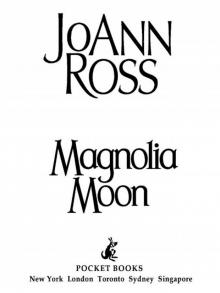 Magnolia Moon
Magnolia Moon Summer on Mirror Lake
Summer on Mirror Lake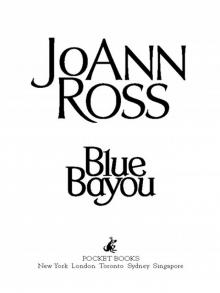 Blue Bayou
Blue Bayou Champagne and Moonlight
Champagne and Moonlight No Regrets
No Regrets Long Road Home
Long Road Home Southern Comforts
Southern Comforts Herons Landing
Herons Landing Untamed
Untamed No Regrets (Mira Romance)
No Regrets (Mira Romance)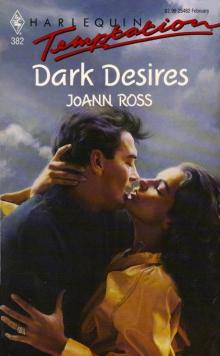 Dark Desires
Dark Desires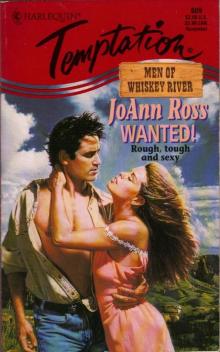 Wanted!
Wanted! River Road
River Road Midnight Runaway
Midnight Runaway The Long Way Back
The Long Way Back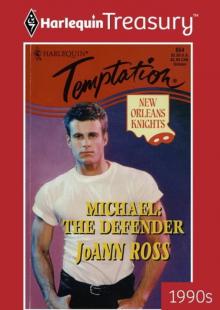 Michael: The Defender
Michael: The Defender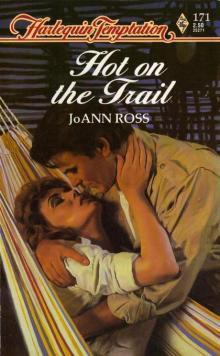 Hot on the Trail
Hot on the Trail When I'm With You
When I'm With You Legends Lake
Legends Lake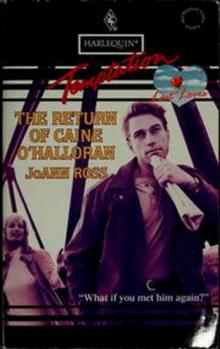 The Return of Caine O'Halloran
The Return of Caine O'Halloran Dance with a Dynasty
Dance with a Dynasty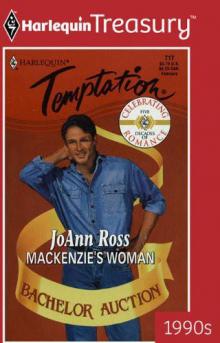 MacKenzie's Woman
MacKenzie's Woman Impulse
Impulse Sunset Point: A Shelter Bay Novel
Sunset Point: A Shelter Bay Novel You Again: A Shelter Bay novella (Shelter Bay series Book 8)
You Again: A Shelter Bay novella (Shelter Bay series Book 8)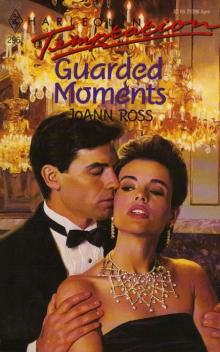 Guarded Moments
Guarded Moments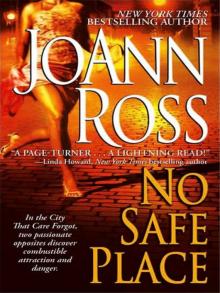 No Safe Place
No Safe Place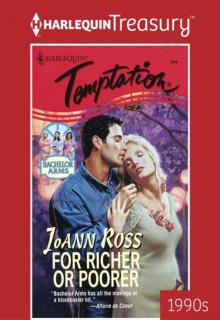 For Richer or Poorer
For Richer or Poorer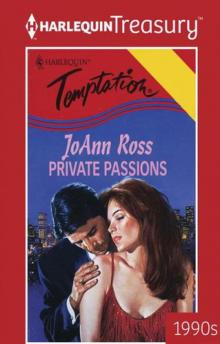 Private Passions
Private Passions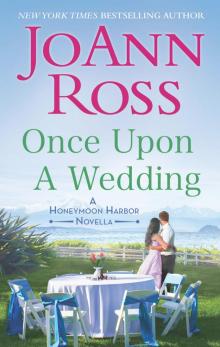 Once Upon a Wedding
Once Upon a Wedding Snowfall on Lighthouse Lane
Snowfall on Lighthouse Lane Christmas on Main Street
Christmas on Main Street A Place in Time (Rum Runner Island Book 1)
A Place in Time (Rum Runner Island Book 1) Leaving Blue Bayou
Leaving Blue Bayou The Return of Caine O'Halloran: Hard Choices
The Return of Caine O'Halloran: Hard Choices Lucky in Love
Lucky in Love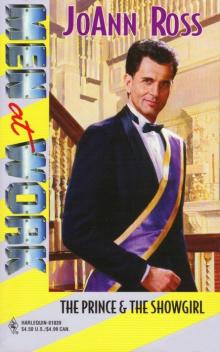 The Prince & The Showgirl
The Prince & The Showgirl Castaway Cove
Castaway Cove A Woman's Heart
A Woman's Heart One Summer
One Summer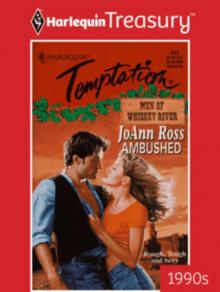 Ambushed
Ambushed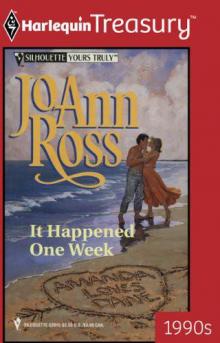 It Happened One Week
It Happened One Week Home by the Sea
Home by the Sea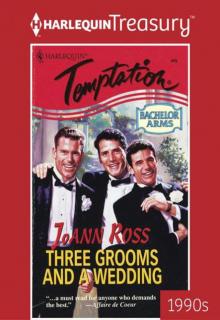 Three Grooms and a Wedding
Three Grooms and a Wedding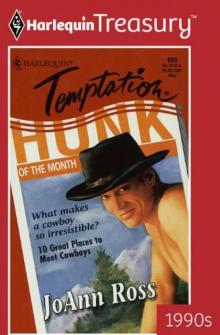 Hunk of the Month
Hunk of the Month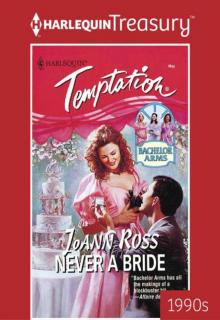 Never a Bride
Never a Bride Sun Kissed
Sun Kissed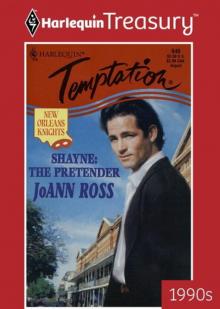 Shayne: The Pretender
Shayne: The Pretender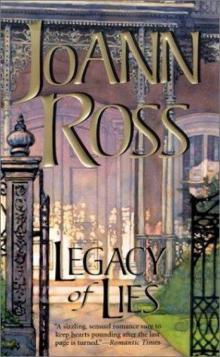 Legacy of Lies
Legacy of Lies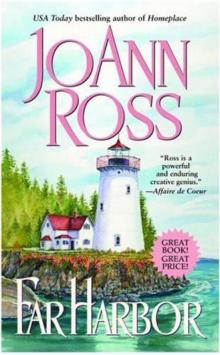 Far Harbor
Far Harbor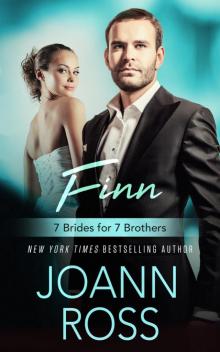 Finn
Finn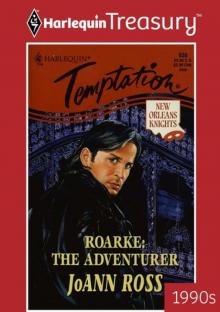 Roarke: The Adventurer
Roarke: The Adventurer I Do, I Do...For Now (Harlequin Love and Laugher)
I Do, I Do...For Now (Harlequin Love and Laugher) Briarwood Cottage
Briarwood Cottage On Lavender Lane
On Lavender Lane Sea Glass Winter
Sea Glass Winter River's Bend
River's Bend Christmas in Shelter Bay
Christmas in Shelter Bay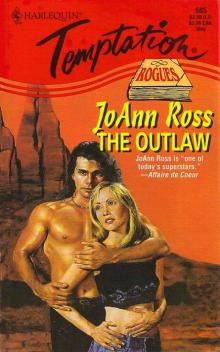 The Outlaw
The Outlaw Castaway Cove (2013)
Castaway Cove (2013) Confessions
Confessions Moonshell Beach: A Shelter Bay Novel
Moonshell Beach: A Shelter Bay Novel